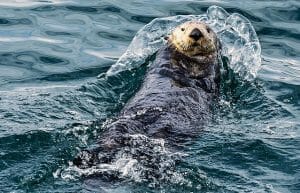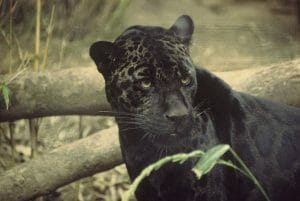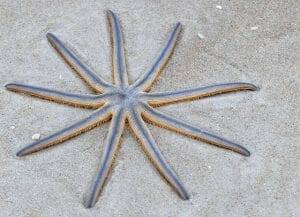Keystone Species Definition
Keystone species are those which have an extremely high impact on a particular ecosystem relative to its population. Keystone species are also critical for the overall structure and function of an ecosystem, and influence which other types of plants and animals make up that ecosystem. Thus, in the absence of a keystone species, many ecosystems would fail to exist. A common example of keystone species in the context of conservation biology is the predator-prey relationship. Small predators that consume herbivorous species prevent such herbivores from decimating the plant species in the ecosystem, and are considered keystone species. In this scenario, despite the low number of predators required to maintain a low population of herbivorous species, without this keystone species, the herbivore population would continue to grow, and thus consume all of the dominant plant species in the ecosystem.
Keystone Species Examples
Sea Otter
The sea otter (shown below) is considered a keystone species as their consumption of sea urchins, preventing the destruction of kelp forests caused by the sea urchin population. Kelp forests are a critical habitat for many species in nearshore ecosystems. In the absence of sea otters, sea urchins feed on the nearshore kelp forests, thereby disrupting these nearshore ecosystems. However, when sea otters are present, their consumption of sea urchins restricts the sea urchin population to smaller organisms confined to protective crevices. Thus, the sea otter protects the kelp forests by reducing the local sea urchin population.
Large Mammalian Predators
While small predators are important keystone species in many ecosystems, as mentioned above, large mammalian predators are also considered keystone species in larger ecosystems. For example, the lion, jaguar (shown below), and gray wolf are considered keystone species as they help balance large ecosystems (e.g., Central and South American rainforests) by consuming a wide variety of prey species.
Sea Star
Sea stars (shown below) are another commonly recognized keystone species as they consume mussels in areas without natural predators. In many cases, when the sea star is removed from an ecosystem, the population of mussels proliferates uncontrollably, and negatively effects the resources available to other species within the ecosystem.
Quiz
1. Which of the following statements is TRUE regarding keystone species?
A. Keystone species are usually herbivores.
B. Keystone species are usually predators.
C. Keystone species are the most abundant species in an ecosystem.
D. Keystone species are non-essential species in an ecosystem.
2. Which of the following statements is FALSE regarding keystone species?
A. Without a keystone species, many ecosystems would fail to exist.
B. Keystone species populations are typically small compared to other species in an ecosystem.
C. Kelp forests are considered a keystone species.
D. Sea otters, lions, and sea stars are also considered important keystone species.
References
- Bucci et al. (2017). Sea Star Wasting Disease in Asterias forbesi along the Atlantic Coast of North America. PLoS One. 12(12):e0188523.
- Gooding, R and Harley, C. (2015). Quantifying the Effects of Predator and Prey Body Size on Sea Star Feeding Behaviors. Biol Bull. Jun;228(3):192-200.
- Humphries et al. (2017). To Everything There Is a Season: Summer-to-Winter Food Webs and the Functional Traits of Keystone Species. Integr Comp Biol. 57(5):961-976. doi: 10.1093/icb/icx119.
- Petes eta l. (2008). Effects of environmental stress on intertidal mussels and their sea star predators. Oecologia 156(3):671-80. doi: 10.1007/s00442-008-1018-x.
Keystone Species



No comments:
Post a Comment